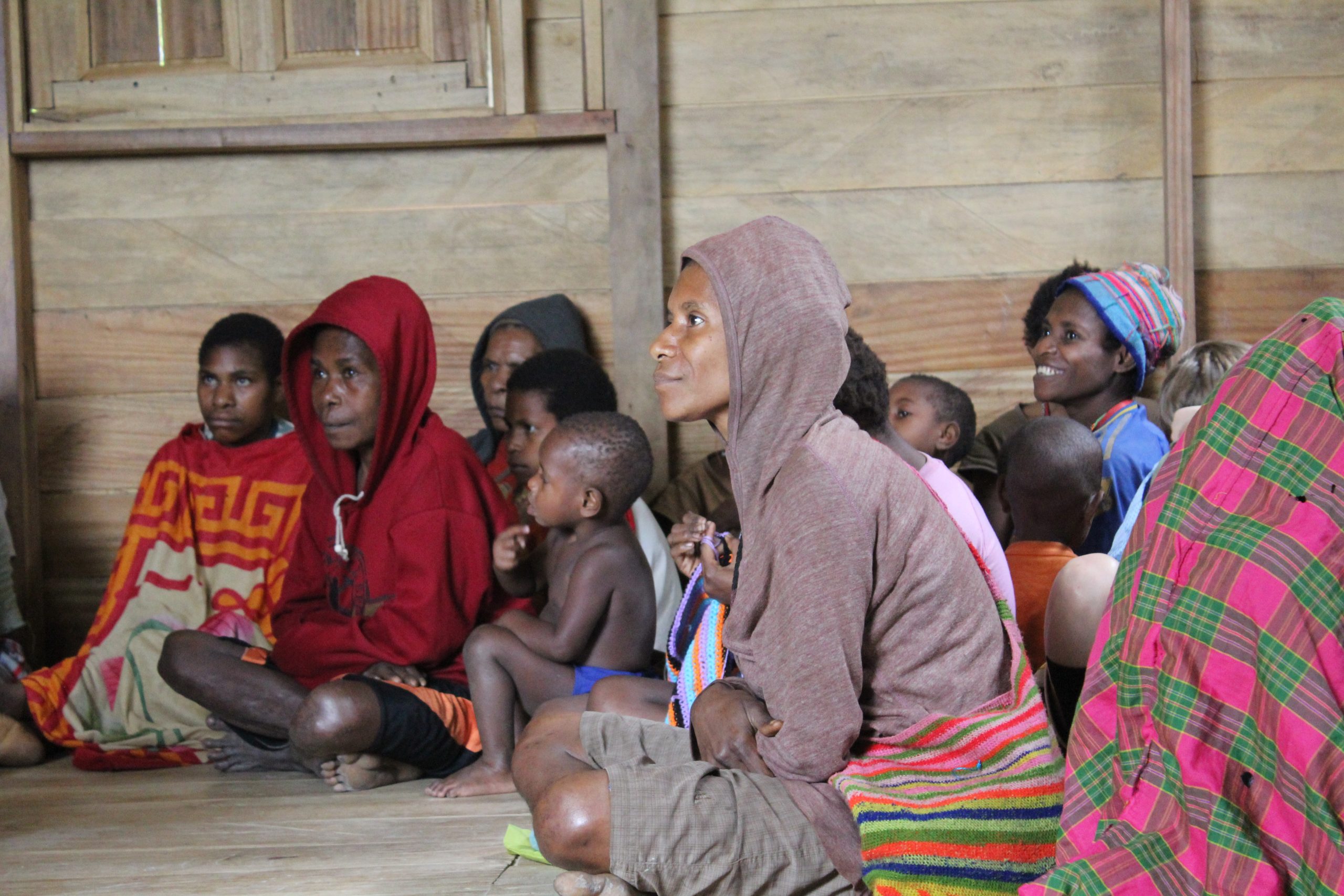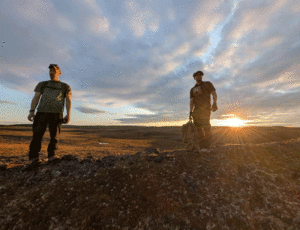Yesterday you read an overview of weeks two through seven of the teaching that has been going on in Southeast Asia with the Nagi people. Last night the Nagi people heard about the crucifixion and death of Jesus for the first time in their own language. Tonight they will hear about His burial and resurrection for the first time.
Here is an overview of weeks eight through thirteen sent by Porter and Lexi:
Week Eight
The tabernacle, the bronze snake… this week continued to show there is no hope apart from God. As sinners, none of us are acceptable in and of ourselves to God. Many are beginning to question their traditional beliefs, but the other religion they have been following has told them for so long that they must DO what is right in order to be saved. Many are thinking that they must leave off the traditional ways (spirit worship, keeping taboos, sorcery, lying, stealing, cheating) and embrace ‘religion,’ and in their minds, ‘religion’ is DOING what is right.
When talking about the Canaanites and how they didn’t know God and worshipped other spirits, Dorteya said, “That is just like us. They were just like us. We also didn’t know about Yawe.”
After the lesson, Petrus was talking about spirits, “We have always been afraid of the kazom (spirits of dead ancestors). We will be sitting in our house, and we’ll hear a knocking outside (and he knocked on the wall), and we’ll jump and be scared that it’s a dead ancestor’s spirit. Or when someone dies, the body is lying there in the house, and at night we’ll hear a whistle, and we believe it’s the dead person’s spirit. We didn’t know it wasn’t them.” After pointing up to the picture of Satan’s fall, and Petrus was reminded that when Satan turned against God, a bunch of the angels did bad and joined him. They are constantly going around and lying and tricking people. Petrus said, “Yeah, so we’re really scared.” When asked, “Yes, but who is the strongest?” He got a‘ahh! yeah!’look on his face and said, “Yawe is the strongest.”
Week Nine
We taught on the kings of Israel and God telling David that from his descendants would come the Deliverer. We had some neat review times going back over the previous stories… all the way back to Adam and Eve, God had promised He would send a Deliverer, and God continued to remind men of this all through history.
Smiling, Boni said, “Many years, but He didn’t forget yet!”
Everyone was laughing when it was read that Jonah was going away to try to hide from God. When asked what Jonah was talking to God about inside the fish? Kiris and Anas both said, “Yawe, I by myself am not enough to get out.” Obet said, “I have done wrong, not You.”
After teaching on the purpose of the prophets, 20 prophecies of the coming Deliverer were covered.
During the prophesy about the Deliverer going to take on the sin and punishment of all, Desa gave a good impromptu review for everyone of why the Deliverer had to come:
Because the payment for sin is death, because man can’t make the payment themselves… all these stories so far… the lambs’ blood covered their sin temporarily. God allowed it to cover, but He said, ‘I’m going to send the Deliverer, and He will take care of it all.
When it was read that Mary would deliver God’s Son, Desa leaned over, and grabbed Yopi by the shoulder and said, “Because of compassion/love…”
Week 10
We started out talking about the wise men coming to Jesus with gifts, Joseph, Mary and Jesus’ flight to Egypt, and eventual return to Jerusalem. Many were enthralled with the story of Jesus and his folks going to the Passover in Jerusalem.This story also provided a good review of the Passover and the significance of the Passover lamb.
Teaching about baptism seemed eye-opening for many! It was surprising to see how many heads were nodding, and there were numerous, “Oh, wow! Really? But that’s what we’ve always thought/been taught!” comments. Porter was teaching on what baptism is NOT… Teaching on what baptism IS for, Porter worded this a couple different ways, so people could understand better. Marike, one of the quiet ones, piped up loudly in her own words, “For the reason of (to show): ‘they are the ones who have grabbed hold of My (God’s) talk’!” Many were reminding each other that everyone individually will have to decide if they will believe in God.
Teaching about John baptizing Jesus, and announcing Jesus as the Deliverer (Lamb of God), Yayan, Lowata, Yumnib, and Marike were all looking at each other with big eyes and smiling. Yumnib leaned over, smiling from ear to ear, “That talk there… I’m happy about that!” She patted her legs and said, “This body will die,” and she gestured to the floor (like when they’re talking about someone who has been buried), “But my spirit will go live with God!” she said, as she pointed upwards. She couldn’t stop smiling and was doing her little bouncing thing like she does when she’s happy about something.
Week 11
This week, the Nagi heard how Jesus healed the sick, cast out demons, calmed a storm and forgave sin. They are saying:
“His Father is God! As God, He made the paralytic better when nobody else could” —Sapina
“By just speaking, it happens like He says!” —Nikela
Obet was impressed with the lesson on how the Israelites knew God, they had seen His power, they had read His Word, and yet they still didn’t believe.They weren’t like the Ninevites who knew nothing of God and still believed His message sent to them through Jonah. At one point, he used the term ‘religion,’ and said that the Nagi are just like the religious leaders of Jesus’ time, because they thought that they were good enough and didn’t need God, because they were religious… thinking they are ‘good to go’ in the sight of God. A lot of the ladies were in agreement saying, “We habitually do like that!”
Yaveng talked for a bit about needing to hear and understand… “If I die, it’s too late… I will be buried and that’s it.” …the rest of his talk was basically, “it’s us who are alive now that need to hear and think about this.”
Grandma Okvinim struggled to understand Jesus’ comparison of His burial to that of Jonah. She was very startled to think that Jesus would be in the tomb for three days, and she thought it meant He would be in there alive. She stated that Jonah was alive in the belly of the fish, so Jesus must have been saying that He would be alive too. Then she said, “He is God, He won’t die!” Even though it took some explaining, it was exciting none the less to hear her trying to make sense of things. God is eternal, so how could He die?
Week 12
The checking session this morning started out kind of rough. There were quite a few distractions and conversations about things unrelated to the lesson. I was pretty discouraged, but when we got to the end, I just reminded the guys to be thinking hard about what they were hearing.
Yan then related how when he left yesterday, he was super happy. I asked why he was happy and he said: “Because we got to the end of the talk and Jesus did it all, just like Yawe said. I was so scared, but then we found out Jesus took our punishment, and it was enough — I was happy. Then, I went down to the village and told the people in my house what we had talked about, and then I went walking around telling people in other houses.”
Anton shared similar thoughts: “Yesterday when we talked about what Jesus did I thought: ‘Maybe that’s true!’” So I asked him if he said: “Maybe it’s true!” or if he said: “It’s true!” (Their way of indicating belief). He said: “No, I said it’s true. Everything that Jesus did is just what Yawe told His prophets to write about the Deliverer.” I asked if what Jesus did was enough to remove their sins or not, and they said: “Yes! It was totally sufficient.”
Anton then went on to explain that yesterday he had understood from the lesson that when Jesus died, He did not just die for the past sins of the world, but that He died for all the sins of our future as well. He took them all on and died, so what He did was enough. I started asking questions like: “So, if you guys believe in Jesus and then customarily go to church, will Yawe save you?” They said: “No, going to church does not save us.” Porter: “What if you believe in what Jesus did and get baptized, will that save you?” Them: “No, baptism does not connect our road.” What about communion? “No.” Then Anton voluntarily: “Giving money doesn’t do anything either. Back when you taught us that Yawe needs nothing, I thought: ‘So what is the point in giving money in church? I bet that money just gets used by the guys higher up in the church. Yawe doesn’t need money! All those things have no meaning if your road is not connected (I had not told them this yet).’
Week 13
Today, the Nagi heard about Jesus’ betrayal, beatings, and judgement.
Thursday, (5-7pm Wednesday night Central Standard Time) they will hear of Jesus’ crucifixion & death.
Friday, (5-7pm Thursday night Central Standard Time) Jesus’ burial & resurrection!
We are anticipating God to continue the work in the Nagi’s hearts that He has already begun. Porter wrote about the guys (Yan & Anton) that help him with checking the lessons before they are taught. Porter finished checking the final lesson for this part of the teaching this week with these guys. Since they have heard it all now, Porter asked Yan and Anton, “Where will you go when you die? To the fire?”
Guys: “No!”
Porter: “Why won’t you go to the fire?”
Guys: “Because we believe Yawe’s word.”
Porter: “So if you die and stand before Yawe and He asks you what you have done so that He should accept you, what will you tell Him?”
Guys: “No, we will tell Him that we have believed His word.”
Below is Anton’s translated explanation of substitutionary death:
Anton: “Jesus never disobeyed a single command. He never once crossed any of Yawe’s written talk. He was really truly good (perfect) so us other people needing to give our blood to Yawe (in payment), (our blood) would not be enough. We have entered the root of evil (sin principle/we are sinners), we have sin, so if we give our blood, Yawe will not say: “It’s true! Your blood is enough so I will save you!” He will not save us (if we give our blood), so Jesus is the Deliverer, and our sin that we customarily do, our having entered into the root of evil, our bad thoughts, bad words, that we are customarily doing, for all that bad stuff, Yawe sent Jesus so He, having no bad (being sinless), at the time He gave His blood to Yawe, Yawe said: “It’s true! My child Jesus, He has given His blood to Me there. Man’s sin that they customarily are doing, He has connected their road so that they listen well to My Word and come to Me,” He said. So Yawe sending Jesus, Jesus’ death, Jesus did not even a little bit enter into the root of evil with bad thoughts or words, hatred, did not do a bit of bad so He lived the absolute best (sinless), so Jesus died, and at that point, His blood He gave to Father Yawe, so that this sin that we are customarily doing, He, in order to take hold of the punishment for that, in order to take hold of the punishment for our sin Jesus, He died and gave His blood to Father Yawe and in order to take hold of this our punishment and do good/fix and connect our trail (to Yawe), He died.”
Porter: “Him doing like that, in what way was it like how other people such as Abraham and Isaac had done?”
Anton: “Jesus’ death, it was (like) in the past when Yawe told Abraham: “Kill you son Isaac and give Him to me,” and Abraham built an altar and put wood on it was desiring to kill his son and burn him toward Yawe, and Yawe said: “No! Abraham, don’t kill your child,” and Abraham looked over and there in the brambles he saw a sheep for putting in Isaac’s killing place caught by its horns, and he went and got it and put it in Isaacs killing place, undoing Isaac’s bonds and putting him on the ground, and then putting the sheep in Isaac’s place and burning it toward Yawe, it was like that, that Jesus did. Jesus also died like that, taking the place of us sinners, they struck Him and He died. So the punishment we were to take hold of, Jesus took hold of it, suffered and died.”
Jesus also died like that, taking the place of us sinners, they struck Him and He died. So the punishment we were to take hold of, Jesus took hold of it, suffered and died.”




